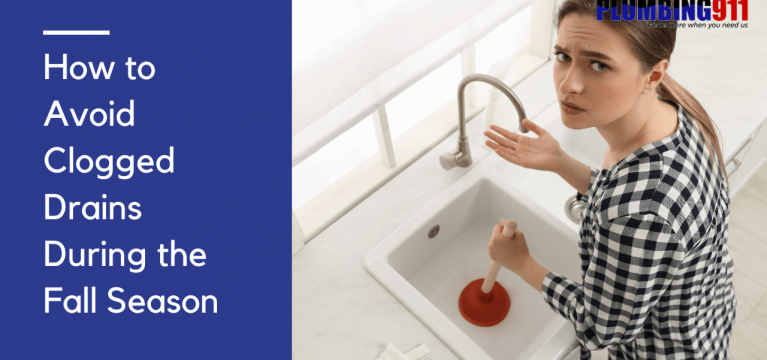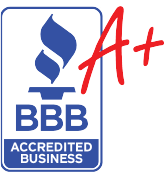As the leaves start to change and the air turns crisp, fall brings not just beautiful scenery but also the potential for clogged drains. With the season comes a flurry of activities—think cooking hearty meals, cozying up with warm drinks, and enjoying the outdoors. However, all these fun fall activities can lead to unexpected plumbing issues if you’re not careful. In this post, we’ll dive deep into the common causes of clogged drains during the fall and share some essential tips to keep your drains flowing smoothly.
What Are the Common Causes of Clogged Drains in the Fall?
Food Waste and Its Impact on Kitchen Drains
When you’re whipping up those delicious fall recipes, it’s easy to let food scraps slip down the kitchen drain. Whether it’s pumpkin guts, leftover vegetable peels, or the remnants of that hearty stew, food waste is a top culprit for kitchen drain clogs. These food particles can accumulate over time, especially if they’re mixed with grease or oil, leading to stubborn clogs that can back up your entire drainage system. To prevent clogged drains, be mindful of what goes down your sink and consider composting or disposing of food scraps in the trash instead.
How Grease Contributes to Drain Clogs
Speaking of grease, this slippery substance is another major player in the game of clogged drains. People often think it’s okay to pour leftover cooking oils or fats down the drain, but this is a big no-no! When grease cools, it solidifies and sticks to the inside of your pipes. Over time, this buildup can cause significant blockages, leading to plumbing problems that could require professional intervention. Always let grease solidify in a container before throwing it away, and avoid putting any fat down your drains.
Understanding Mineral Buildup in Pipes
As your home’s plumbing system ages, mineral buildup can become a silent enemy. Hard water, which contains high levels of calcium and magnesium, can create limescale inside your pipes. This buildup narrows the pipe diameter and can lead to slow drainage or even complete clogs. If you live in an area with hard water, consider investing in a water softener or regularly cleaning your pipes to minimize this issue. Regular maintenance is key to keeping your drains clear and your plumbing system healthy.
What Are the Best Practices for Preventing Clogged Drains?
Using Drain Covers to Keep Debris Out
One of the simplest ways to prevent clogged drains is to use drain covers or strainers. These handy tools catch debris like hair, food particles, and soap scum before they have a chance to go down your drains. In the bathroom, using drain screens in shower drains and bathroom sinks can significantly reduce the risk of clogs. Plus, they’re easy to clean! Just rinse them off and put them back in place. Keeping your drains clear starts with making sure the wrong stuff doesn’t make its way down.
Regular Maintenance Tips for Healthy Plumbing
To keep your drains flowing smoothly, regular maintenance is essential. This includes routine inspections of your pipes and drainage system. Check for leaks, and if you spot any, take action immediately. Schedule regular drain cleaning sessions to flush out any potential buildup before it becomes a problem. A little preventative care goes a long way in avoiding those pesky plumbing issues that can crop up as the seasons change.
DIY Drain Maintenance: Baking Soda and Vinegar
If you’re looking for a natural way to clean your drains, you can’t go wrong with the classic combo of baking soda and vinegar. This DIY drain cleaner works wonders in breaking down stubborn clogs and keeping your pipes clean. Simply pour half a cup of baking soda down your drain, followed by half a cup of vinegar. Let it fizz and work its magic for about 30 minutes, then flush with hot water. This method not only helps to dissolve any buildup but also keeps your drains smelling fresh!
How Can You Effectively Clean Your Drains?
Choosing the Right Drain Cleaner for Your Needs
When it comes to cleaning your drains, choosing the right drain cleaner is crucial. There’s a wide array of products available, from chemical cleaners to enzyme-based solutions. Chemical cleaners can be effective, but they can also be harsh on your pipes if used too frequently. Opt for a drain cleaner that aligns with your plumbing system’s needs. Remember, regular drain cleaning can prevent the need for heavy-duty solutions down the line.
Hot Water Flushing: A Simple Yet Effective Method
One of the easiest ways to maintain your drains is by simply flushing them with hot water. This method is particularly effective in the kitchen, where grease and food scraps can accumulate. Just boil a pot of water and pour it down your sink drain. The heat helps to break down any grease and flushes away small particles that could lead to clogs. For best results, make this a regular habit, especially after cooking with oily foods.
Preventing Hair and Soap Scum Buildup in Shower Drains
In the bathroom, hair and soap scum are notorious for causing shower drains to clog. To combat this, consider using a drain strainer to catch hair before it goes down. Additionally, regular cleaning of your shower drain will help keep soap scum from building up. You can use a combination of baking soda and vinegar, or even a store-bought cleaner to keep your shower drains in top shape. A little bit of regular maintenance can go a long way in ensuring you don’t end up with a clogged shower drain.
What Should You Avoid to Keep Your Drains Clear?
Why You Should Never Put Grease Down the Drain
As mentioned earlier, pouring grease down the drain is one of the biggest mistakes you can make. It’s essential to understand how this can lead to a messy and costly problem down the line. Instead, always dispose of grease in a container and throw it away with your regular trash. Preventing grease from entering your plumbing system is one of the most effective tips to keep your drains clear.
The Risks of Flushing Non-Biodegradable Items
It might seem convenient to flush items like paper towels, cotton swabs, or feminine hygiene products down the toilet, but this practice can lead to serious drain clogs. These items don’t break down easily and can cause significant blockages in your sewer system. Always dispose of non-biodegradable items in the trash to avoid expensive plumbing repairs. Remember, your toilet is not a trash can!
Common Mistakes When Using a Garbage Disposal
Using a garbage disposal can be a great way to get rid of food scraps, but there are a few common mistakes that can lead to clogged drains. First, never put hard items like bones or large pieces of food down the disposal. This can lead to stubborn clogs that are hard to fix. Additionally, always run cold water while using your garbage disposal to help flush everything down properly. Taking these steps can prevent your drains from clogging and keep your disposal working efficiently.
How Do Tree Roots Affect Your Drainage System?
Identifying Signs of Tree Root Intrusion
Tree roots are sneaky culprits that can wreak havoc on your drainage system. They often seek out moisture and can infiltrate your pipes, leading to severe clogs. Signs of tree root intrusion include slow drainage, frequent backups, and unusual odors coming from your drains. If you suspect that roots are causing plumbing issues in your home, it’s crucial to act quickly to avoid costly repairs.
Methods for Preventing Tree Roots from Clogging Pipes
To prevent tree roots from clogging your pipes, consider planting trees away from your plumbing lines. You can also install root barriers around your pipes to deter roots from growing towards them. Regular inspections of your drainage system can help you catch any potential issues before they escalate. If you notice signs of intrusion, early intervention is key to keeping your drains clear.
When to Call a Professional Plumber for Root Issues
While DIY methods can help, there comes a time when you need to call in the pros. If you’re dealing with severe tree root issues or persistent clogs that just won’t budge, an experienced plumber can help assess the situation and recommend the best course of action. They have the tools and expertise to safely clear your pipes and restore proper flow. Don’t hesitate to seek expert advice when it comes to your home’s plumbing system.













